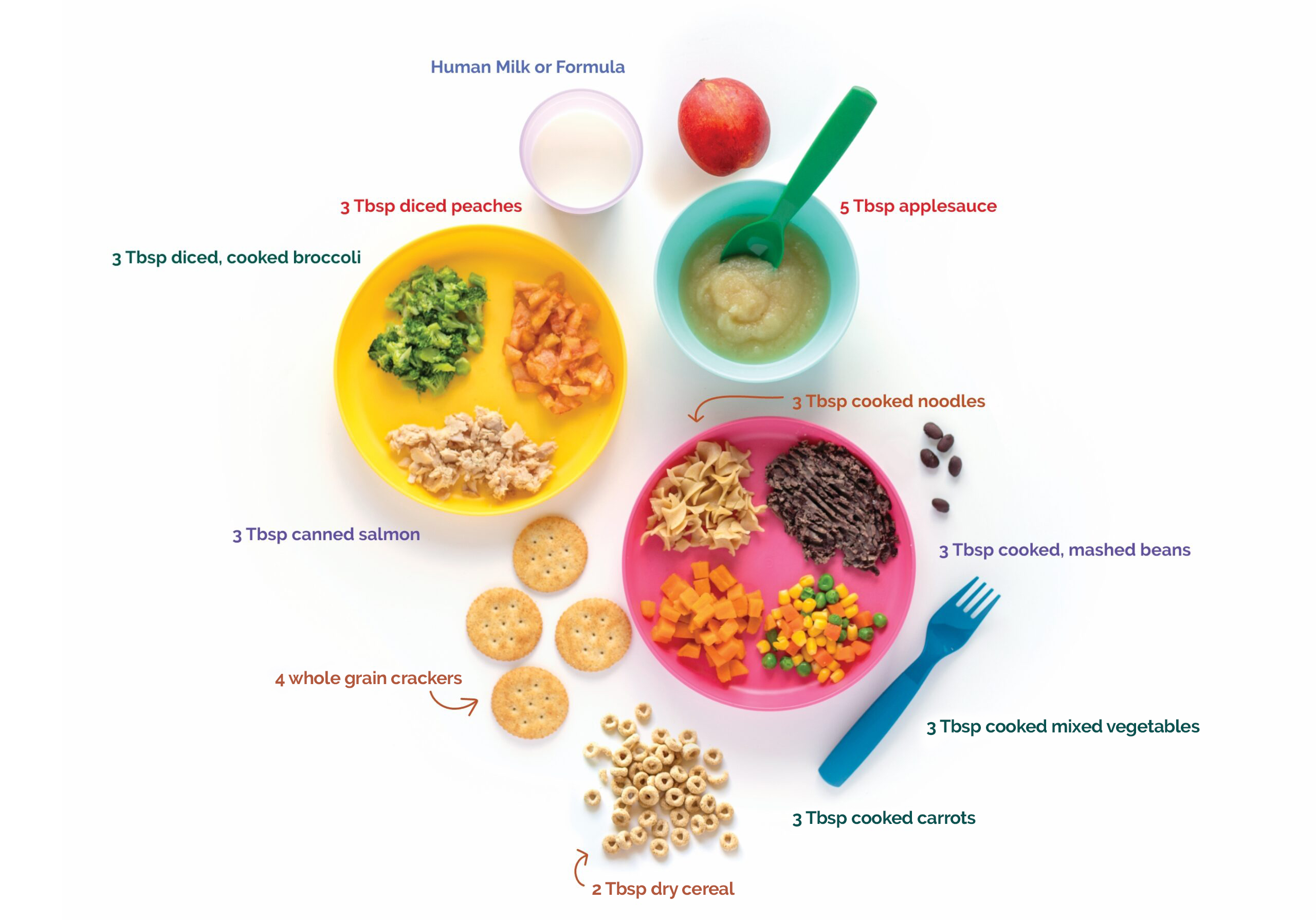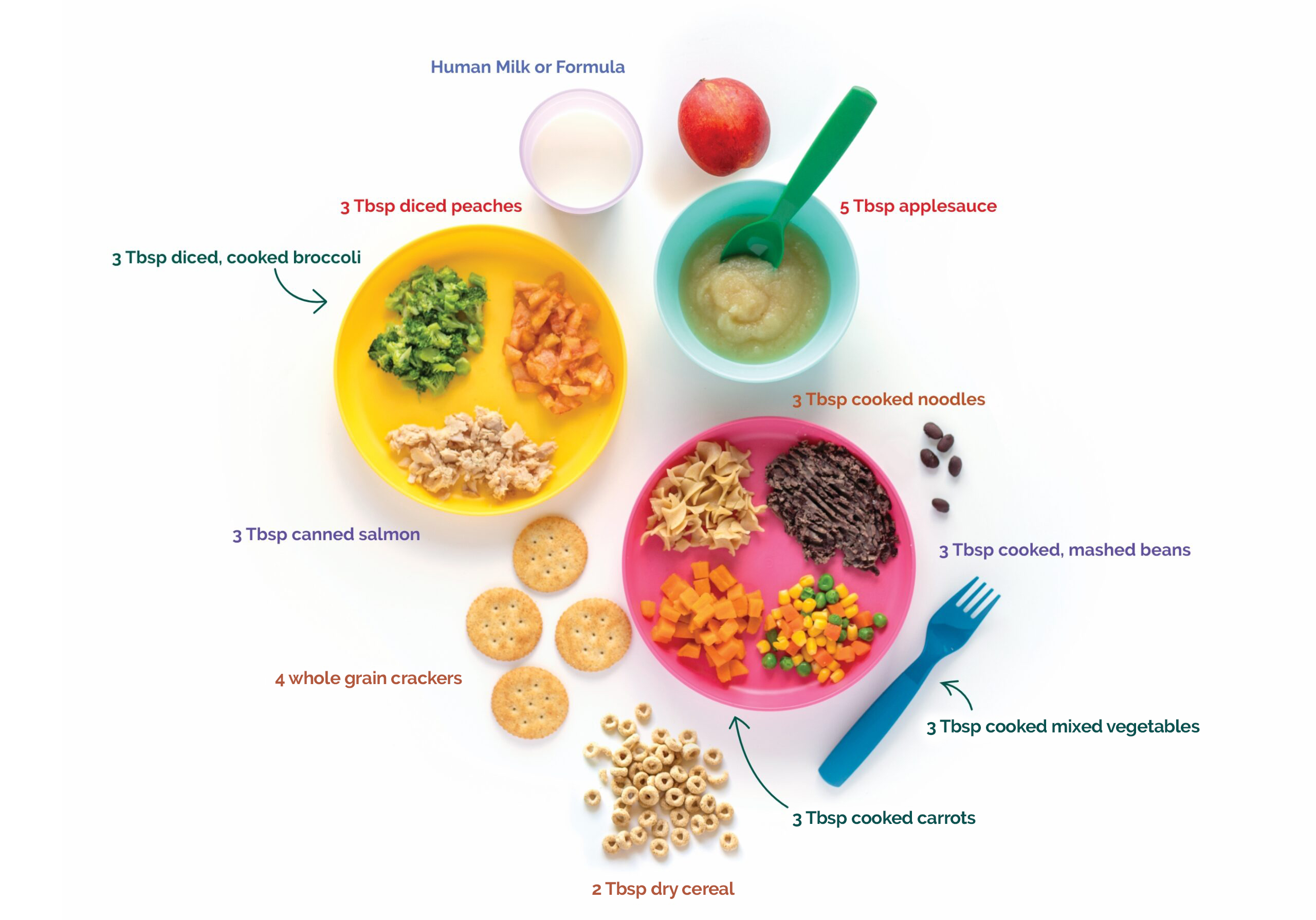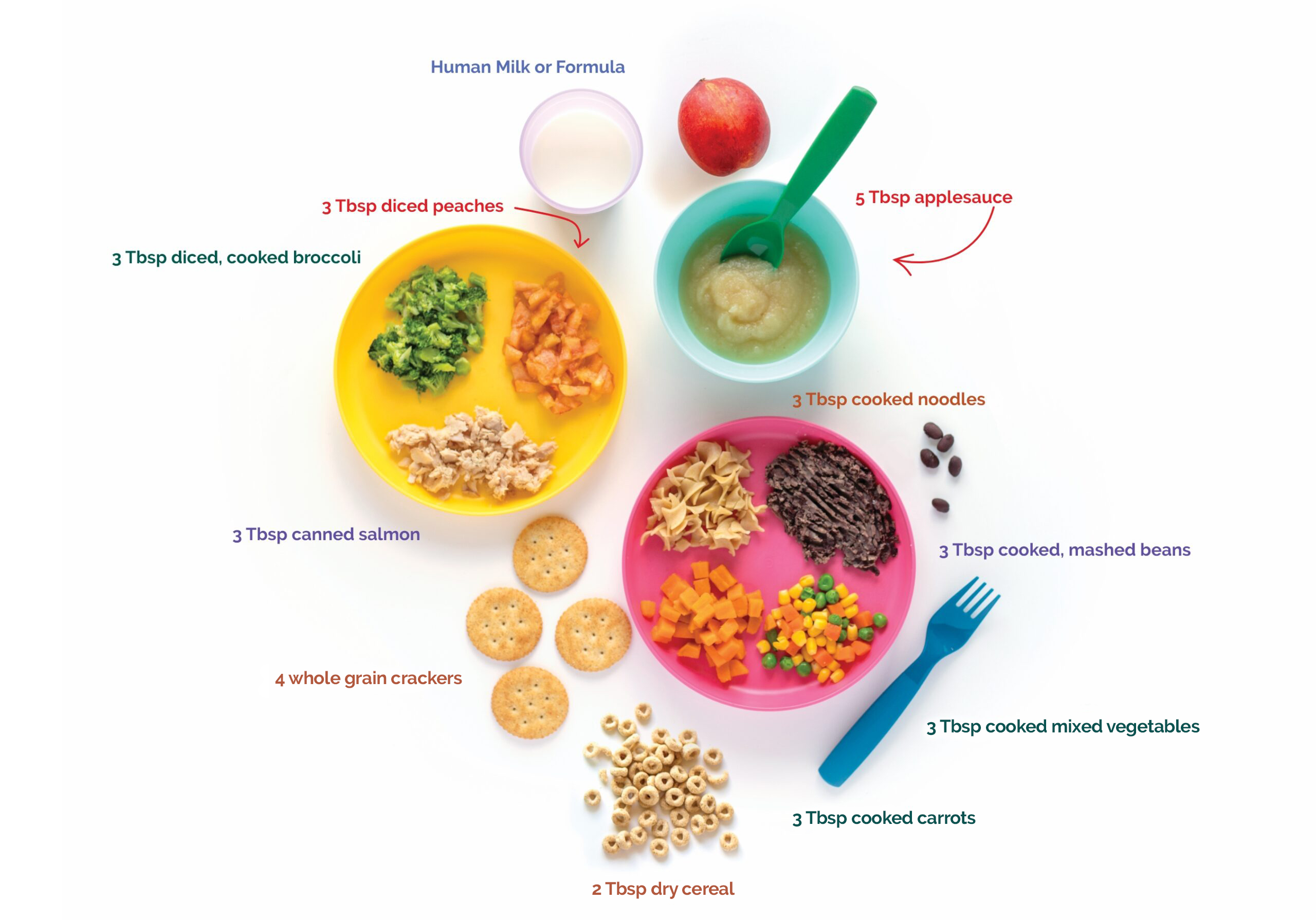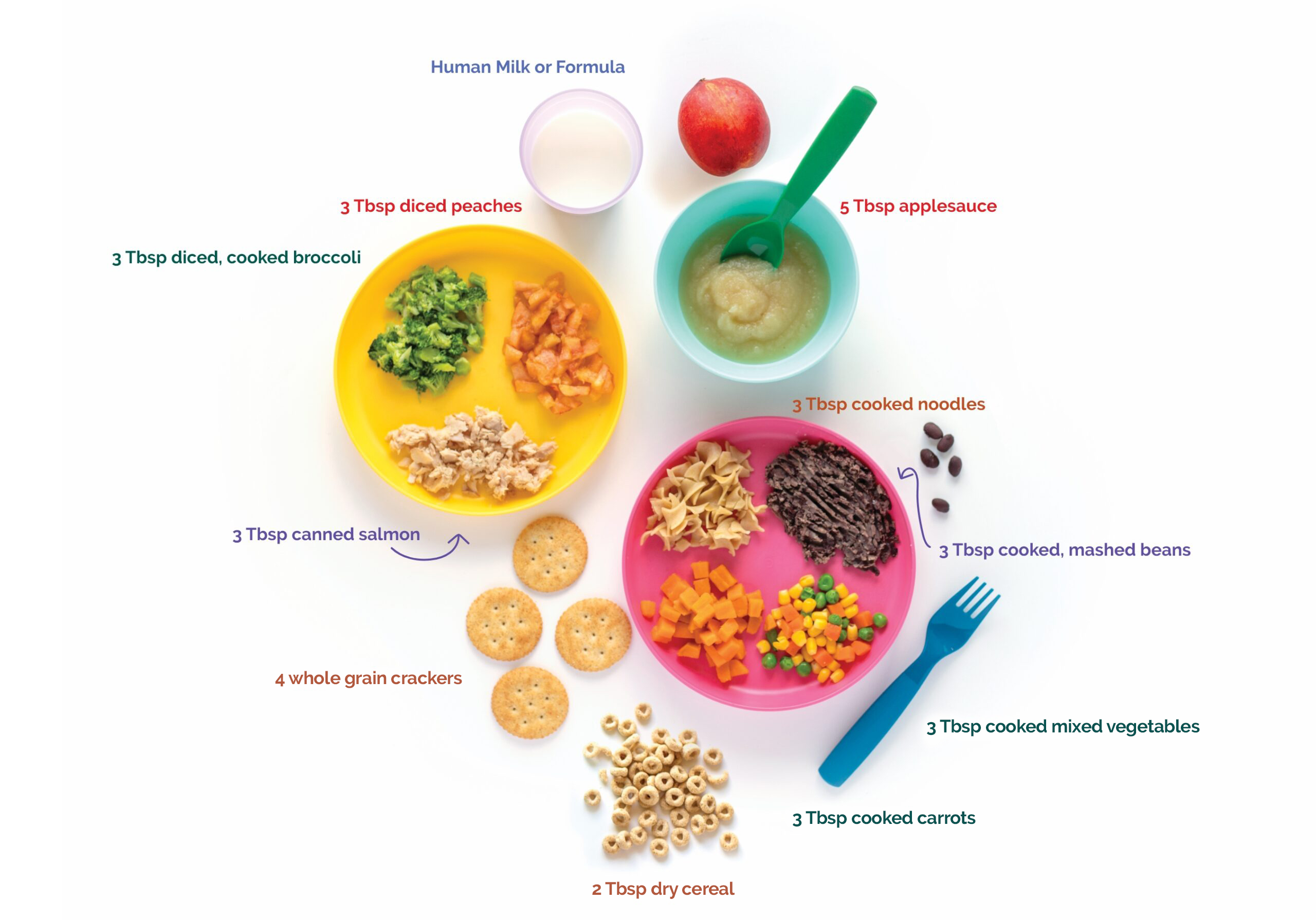As a parent, you’re probably familiar with questions about your baby’s development and achievements at each doctor’s visit. And as you observe your little one’s daily discoveries, you might wonder about the significance of these developmental milestones. Let’s explore what these milestones are and why they hold so much importance in your child’s early years.
Developmental milestones refer to the various skills, behaviors, and abilities that children typically achieve at specific ages during infancy and early childhood. These milestones are key indicators of your child’s growth and progress in different areas of their development.
THE FIVE CRUCIAL AREAS OF DEVELOPMENT
There are five essential areas in which your child achieves developmental milestones:
- Physical Development: involves actions like lifting their head, rolling over, using their arms and legs, crawling, and eventually walking.
- Communication: starts with simple actions like sucking and swallowing, then progresses to making sounds, eating solid foods, and ultimately, talking.
- Social Emotional Development: covers skills like recognizing emotions, interacting with others, smiling, and taking pride in their achievements.
- Adaptive Skills: practical abilities, such as using a fork, pulling off socks, self-feeding, sleeping through the night, and dressing themselves.
- Cognitive Development: responding to sounds, locating hidden objects, following instructions, matching items, and engaging in imaginative play.
THE JOURNEY THROUGH MILESTONES
Developmental milestone skills are divided into age ranges, each building upon previous skills to create a foundation for more advanced abilities. This step-by-step progression is crucial for your child’s development. Here are some of the skills that can be expected for each developmental area by age.
0–3 Months
4–6 Months
7–9 Months
9-12 MONTHS
Physical Development
- Lifts head briefly
- Moves arms and legs actively
- Rolls over from stomach to back
- Pushes up on arms when lying on stomach
- Reaches for and grasps objects
- Sits without support
- Crawls or scoots
- Pulls up to stand with support
- Stands without support
- Takes first steps with assistance
Communication
- Cooing and making simple sounds
- Babbling and imitating speech sounds
- Experimenting with different speech sounds
- Responds to name
- Uses gestures like waving
- Says simple words like “mama” and “dada”
Social Emotional Development
- Smiles in response to familiar faces
- Laughs and shows excitement
- Displays stranger anxiety
- Enjoys peek-a-boo games
- Expresses different emotions
- Starts playing interactive games
- Waves goodbye and plays interactive games
Adaptive Skills
- Sucking and swallowing
- Holds objects and brings them to mouth
- Begins exploring objects with hands and mouth
- Finger feeds and holds bottle
- Learns to hold utensils
- Uses spoon or fork to self-feed
Cognitive Development
- Follows objects with eyes
- Explores objects with mouth and hands
- Begins understanding object permanence (understanding things exist even if you can’t see/hear them)
- Searches for hidden objects
- Starts following simple directions
- Responds to simple instructions
Physical Development
0–3 Months
- Lifts head briefly
- Moves arms and legs actively
4–6 Months
- Rolls over from stomach to back
- Pushes up on arms when lying on stomach
- Reaches for and grasps objects
7–9 Months
- Sits without support
- Crawls or scoots
- Pulls up to stand with support
9-12 MONTHS
- Stands without support
- Takes first steps with assistance
Communication
0–3 Months
- Cooing and making simple sounds
4–6 Months
- Babbling and imitating speech sounds
- Experimenting with different speech sounds
7–9 Months
- Responds to name
- Uses gestures like waving
9-12 MONTHS
- Says simple words like “mama” and “dada”
Social Emotional Development
0–3 Months
- Smiles in response to familiar faces
4–6 Months
- Laughs and shows excitement
- Displays stranger anxiety
7–9 Months
- Enjoys peek-a-boo games
- Expresses different emotions
- Starts playing interactive games
9-12 MONTHS
- Waves goodbye and plays interactive games
Adaptive Skills
0–3 Months
- Sucking and swallowing
4–6 Months
- Holds objects and brings them to mouth
- Begins exploring objects with hands and mouth
7–9 Months
- Finger feeds and holds bottle
- Learns to hold utensils
9-12 MONTHS
- Uses spoon or fork to self-feed
Cognitive Development
0–3 Months
- Follows objects with eyes
4–6 Months
- Explores objects with mouth and hands
- Begins understanding object permanence (understanding things exist even if you can’t see/hear them)
7–9 Months
- Searches for hidden objects
- Starts following simple directions
9-12 MONTHS
- Responds to simple instructions
THE LIFELONG IMPACT OF MILESTONES
The milestones your child achieves during early childhood have a lasting impact on their adult life. From fundamental abilities like walking and talking, to complex tasks such as time management and problem-solving, these milestones play a role in shaping their future.
As a parent, it’s easy to overlook the significance of
every small achievement. Yet, each smile, each new
word, and every step taken is a step towards growth
and independence.
Many milestones are achieved through play, sensory exploration, and interactions with you and your family. Encouraging playtime and engaging with your child is an essential part of fostering their development.
NAVIGATING DEVELOPMENTAL MILESTONES
During medical appointments, answering developmental questionnaires truthfully helps you track your child’s progress accurately. Don’t worry; these assessments are meant to support your child’s development, not judge your parenting skills. Being honest is the best way to help your child succeed.

SEEKING GUIDANCE
Understanding the importance of developmental milestones empowers you as a parent. By staying informed and celebrating each milestone, you’re giving your child the best chance to reach their full potential. Remember, you’re not alone in this journey, and there’s help available whenever you need it. Your dedication and guidance will guide your child towards a bright and successful future!
























